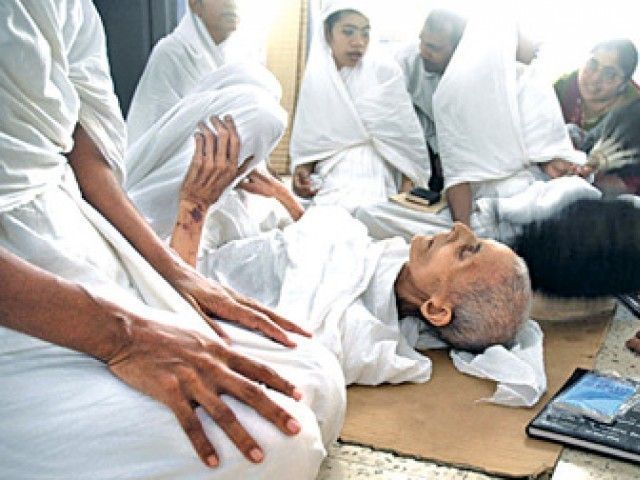-
Tips for becoming a good boxer - November 6, 2020
-
7 expert tips for making your hens night a memorable one - November 6, 2020
-
5 reasons to host your Christmas party on a cruise boat - November 6, 2020
-
What to do when you’re charged with a crime - November 6, 2020
-
Should you get one or multiple dogs? Here’s all you need to know - November 3, 2020
-
A Guide: How to Build Your Very Own Magic Mirror - February 14, 2019
-
Our Top Inspirational Baseball Stars - November 24, 2018
-
Five Tech Tools That Will Help You Turn Your Blog into a Business - November 24, 2018
-
How to Indulge on Vacation without Expanding Your Waist - November 9, 2018
-
5 Strategies for Businesses to Appeal to Today’s Increasingly Mobile-Crazed Customers - November 9, 2018
India’s supreme court suspends ban on starvation ritual
What comes as a rude shock is the fact that Santhara had been branded as a criminal offence on the grounds of being a form of ‘attempted suicide’, which is booked under Section 309 of the Indian Penal Code.
Advertisement
Santhara, the Jains claim, is an ancient ritual in which those who feel they have fulfilled all obligations and duties in life, give up food and water until death.
The high court had also held that any endorsement of Santhara by the members of the community amounted to abetment to suicide.
Today, the bench of Chief Justice H.L. Dattu and Justice Amitava Roy stayed the order and issued notices to the Centre and the Rajasthan government seeking their responses. It is expected that a conclusion on the matter will take several years.
The Bench was hearing a batch of petitions filed by various religious bodies of Jain community members against the High Court order of August 10 on “Santhara”.Senior advocate Harish Salve appeared for the petitioners.
Second, they have contended that Santhara has nothing in common with suicide or forced Sati since it is not performed under mental depression or duress. Jains were respecting their religion and systems and have fought for their custom of fasting that is, Santhara or sallekhana.
Jains had argued in petitions that the ritual was central to their religious beliefs and has been practiced for centuries.
Advertisement
India’s top court agreed Monday to hear the case and placed a stay on the Rajasthan ruling. They believe that Santhara leads to non-violence, as person observing this practice subjugates the passions, which are the root cause of violence. For millions of Jains in India, the PIL was a direct violation of the Indian Constitution’s guarantee of religious freedom.




























